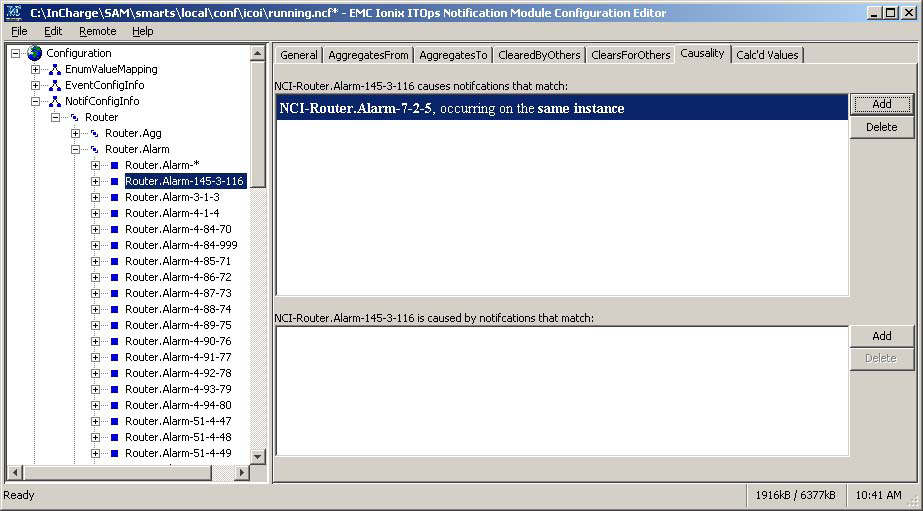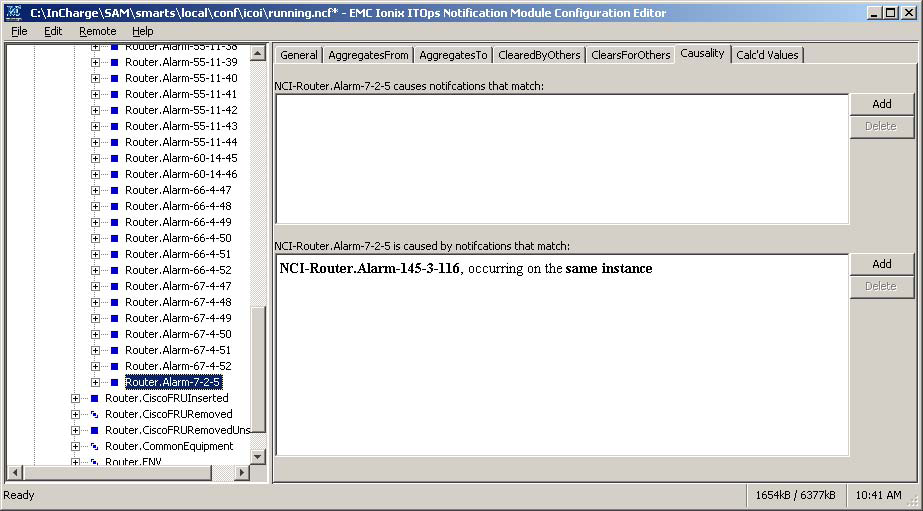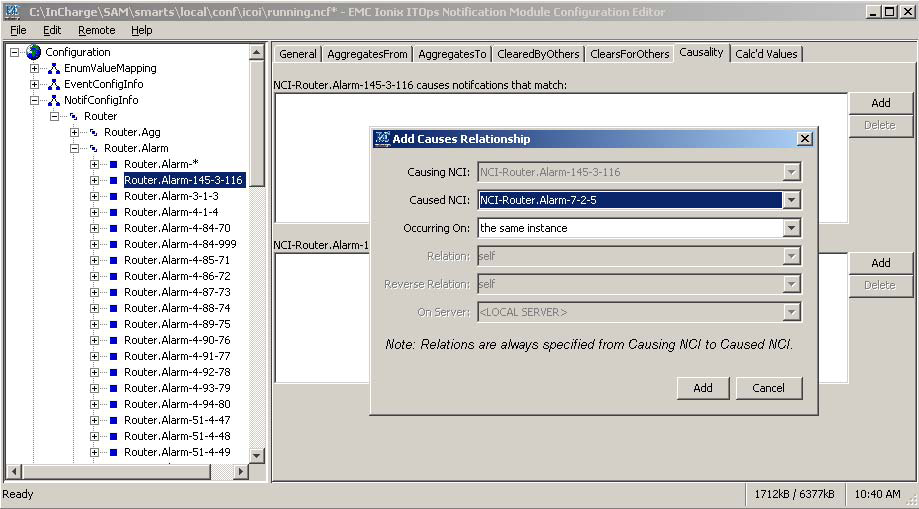You can configure an NCI to indicate that one notification causes another notification, or inversely, that one notification is caused by another notification. After Smarts NOTIF checks an incoming notification for clearing behavior, and any publishing delay has expired, Smarts NOTIF checks to see if the new incoming notification causes any other notifications or is caused by any existing notifications. If Smarts NOTIF finds that the given notification causes or is caused by other notifications, Smarts NOTIF relates the appropriate notifications.
You set up causes/causedby relationships in the Causality tab in the NCI Setup dialog box. For example, to set up a relationship where NCI-Router.Alarm-145-3-116 causes NCI-Router.Alarm-7-2-5, you would do the following:
-
Click the Router.Alarm-145-3-116 NCI object in the topology tree of the Smarts NOTIF Editor.
-
Select the Causality tab.
-
Click Add.
-
The Add Causes Relationship dialog box appears, as shown in Add Causes Relationship dialog box. Select NCI-Router.Alarm-7-2-5 in the Caused NCI: drop-down list and click Add.
Figure 1. Add Causes Relationship dialog box -
The Causality tab for NCI-Router.Alarm-145-3-116 now shows that it causes NCI-Router.Alarm-7-2-5, as shown in Causality tab shows NCI-Router.Alarm-145-3-116 cause NCI-Router.Alarm-7-2-5.
Figure 2. Causality tab shows NCI-Router.Alarm-145-3-116 cause NCI-Router.Alarm-7-2-5 
When you click the Router.Alarm-7-2-5 NCI object in the topology tree of the Smarts NOTIF Editor, the Causality tab shows that this NCI is caused by NCI-Router.Alarm-145-3-116, as shown in Causality tab shows NCI-Router.Alarm-7-2-5 cause NCI-Router.Alarm-145-3-116 .
Figure 3. Causality tab shows NCI-Router.Alarm-7-2-5 cause NCI-Router.Alarm-145-3-116 
In Smarts systems, notifications usually occur on a particular instance within an element. For example, a Loss of Signal notification might occur on a Port instance within a Router element. Smarts NOTIF can use a notification's instance and element to find other instances and elements, and then create causal relationships between the notifications on each of them.
Smarts NOTIF traces causality through the Smarts objects that correspond to the notifications. Smarts NOTIF determines causality by tracing the topology objects in five ways:
-
Occurring on an instance related to the notified instance on page 55
-
Occurring on an instance related to the notified element on page 56
-
Occurring on an element related to the notified element on page 57
For example, in Causality tab shows NCI-Router.Alarm-7-2-5 cause NCI-Router.Alarm-145-3-116 , the causality specification shows that the NCI named Router.Alarm-7-2-5 is caused by the notification Router.Alarm-145-3-116. The relationship between these two notifications is “Occurring on the same instance.”
The causality specification shows all the other notifications caused by a given configuration, and the relationship between the given notification’s instance or element to other instances or elements. The relationship tracing allows notifications of a different class and instance to be related, that is, an interface down may be caused by a router down.
